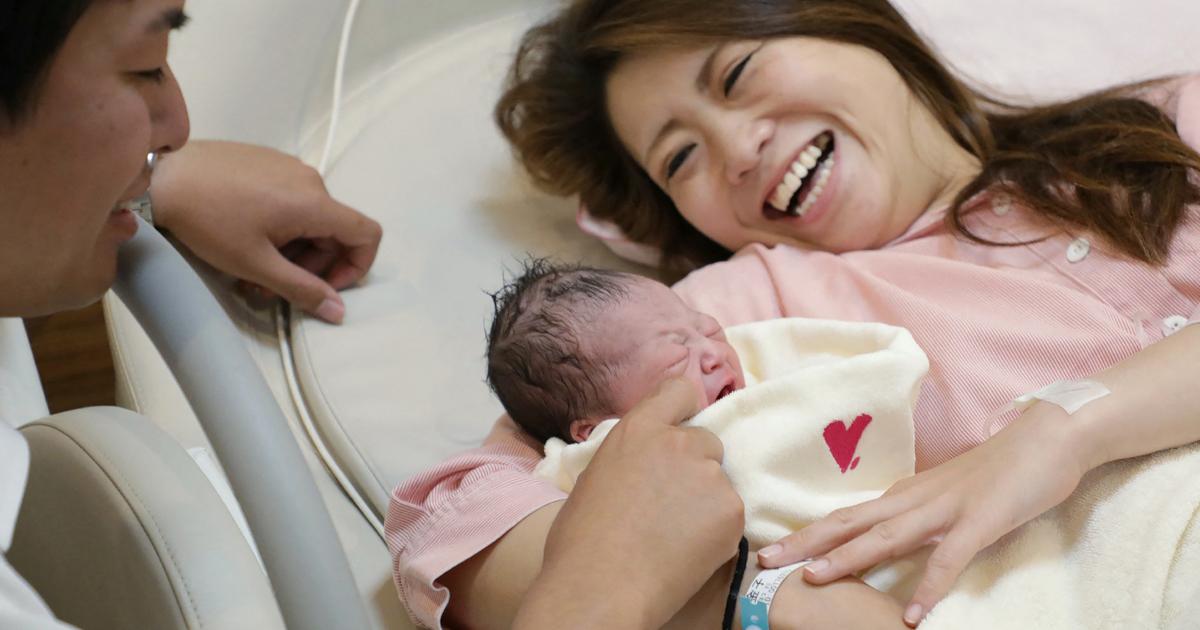Historian, Christian Kessler teaches at the Athénée Français and at Musashi University in Tokyo. Last book published
:
I was a kamikaze
, Ryuji Nagatsuka,
Presentation and notes by Christian Kessler
, Perrin (Tempus), August 2021.
The demographic collapse, it must be called by its name, or what the geographer Gérard -François Dumont also called "the demographic winter" was brought to the fore by Prime Minister Fumio's opening speech Kishida Monday, January 23, 2023. Never before has a prime minister in Japan spoken so insistently and dramatically on this issue, shocking the media and public opinion, suddenly brought back to a reality that puts the very survival of the countries in danger.
And indeed, according to official figures announced on Tuesday February 28, Japan lost nearly 800,000 inhabitants in 2022. It was in 2005 that Japan reached a historic turning point: for the first time in contemporary times, the population of the archipelago begins to decline,
We know the reasons: a collapse in the birth rate due to an increase in the cost of living, the lack of crèches, delirious funding for studies.
Women want to work and no longer automatically seek to marry, preferring to live alone, while births outside marriage remain very low in Japan, around a few percent, which distinguishes the archipelago from other countries.
Especially since on the side of men, marriage is only possible once assured of a stable job, which for half of the thirty-somethings is no longer possible.
Finally, we can invoke the preference for women, but also for men, to live withdrawn into themselves, in the imaginary cocoon of anime, so much so that we have been able to speak of a “sexless” society.
It's probably today
Today we are witnessing a major societal change.
This withdrawal into oneself was already in the air with the phenomenon of
otaku
who no longer leave their homes and remain confined for days and weeks without seeing anyone, only talking with dolls or robots.
Phenomenon that the pandemic is accelerating, which is breaking the social ties already so distant in the Japanese megalopolises, and on which the specialists are racking their brains in vain.
In fifty years, Japan will have shifted from one of the youngest societies in the world to the oldest.
Christian Kessler
In fifty years, Japan will have shifted from one of the youngest societies in the world to the oldest.
From these data, it is not impossible at all, and all the projections point in this direction, to see a Japan with barely 590,000 births until 2045 and then 410,000 until 2065. The observation in this case figure is clear: in 2040, its population will have fallen by more than 14 million, from 125 million today to 110 million.
The country could lose 30 million people of working age, which would be a disaster.
Faced with this demographic crisis which promises to be one of Japan's great challenges, the elites have so far hardly offered any clear solutions.
We often acted here and there with measures taken in dribs and drabs, under the battering of associations which are pushing the government to increase the number of crèches, to finally create a system of home help for women wishing to work, to attack more strongly the
ijime
– physical and psychological aggression on the pupils – which leads to suicide.
For Fumio Kishida, tackling the declining birth rate will be a top government priority.
He said Japan was at a critical juncture, seventy-seven years after the end of World War II.
The Prime Minister announced a battery of measures that should be implemented without further delay, without however giving too many details: search for stable financial sources for child support, salary increases, labor market reform - leaving especially seniors working until after 65, which would also allow them to remain integrated into the social fabric - and of course a growing call for robotics, of which the country is so fond.
It will be necessary, according to him, to break away from obsolete practices and enter a new era,
a challenge in a country where any fundamental change comes up against strong ambient conservatism.
Especially since the growth of the hoary electorate could slow down changes of all kinds and even be accompanied by a cautious withdrawal, a feeling of decline that could feed the nationalism shared by a demoralized youth.
Fumio Kishida's new deal now seeks, in a dramatic tone, to bring the nation together around the challenge of the exponential costs of geronto-growth that are and will increasingly make Japan a country of old people whose subsistence could no longer be assured. given the drastic reduction in assets.
The “women, seniors, robots” trilogy cannot be enough.
as much as the growth of the hoary electorate could slow down changes of all kinds and even be accompanied by a cautious withdrawal, a feeling of decline which could feed the nationalism shared by a demoralized youth.
Fumio Kishida's new deal now seeks, in a dramatic tone, to bring the nation together around the challenge of the exponential costs of geronto-growth that are and will increasingly make Japan a country of old people whose subsistence could no longer be assured. given the drastic reduction in assets.
The “women, seniors, robots” trilogy cannot be enough.
as much as the growth of the hoary electorate could slow down changes of all kinds and even be accompanied by a cautious withdrawal, a feeling of decline which could feed the nationalism shared by a demoralized youth.
Fumio Kishida's new deal now seeks, in a dramatic tone, to bring the nation together around the challenge of the exponential costs of geronto-growth that are and will increasingly make Japan a country of old people whose subsistence could no longer be assured. given the drastic reduction in assets.
The “women, seniors, robots” trilogy cannot be enough.
a sense of decline that could feed the nationalism shared by a demoralized youth.
Fumio Kishida's new deal now seeks, in a dramatic tone, to bring the nation together around the challenge of the exponential costs of geronto-growth that are and will increasingly make Japan a country of old people whose subsistence could no longer be assured. given the drastic reduction in assets.
The “women, seniors, robots” trilogy cannot be enough.
a sense of decline that could feed the nationalism shared by a demoralized youth.
Fumio Kishida's new deal now seeks, in a dramatic tone, to bring the nation together around the challenge of the exponential costs of geronto-growth that are and will increasingly make Japan a country of old people whose subsistence could no longer be assured. given the drastic reduction in assets.
The “women, seniors, robots” trilogy cannot be enough.
Faced with the geopolitical rise of China, which is stepping up its actions to become master of the entire China Sea, the precocity and intensity of the Japanese demographic winter are parameters that make it more difficult for this country to respond. bring.
Christian Kessler
One of the solutions would be to appeal to immigration as South Korea does, which is also in a demographic collapse.
But for this new phenomenon of immigration not to be felt as undermining social harmony, a real policy of integration and naturalization would be needed and the geopolitical relations of Japan with the countries of origin of the immigrants should evolve.
It is true that, in a very homogeneous society which likes to represent itself as a model of "social harmony", regulations similar to those existing in France, such as the right to family reunification or a right to naturalization are neither envisaged nor maybe even possible.
In the demographic situation in which Japan finds itself,
There is no doubt that this lasting crisis, this depopulation of which the government took the measure too late, will affect the role of Japan in the world.
Faced with the rise of China on the geopolitical level, which is stepping up actions to become master of the entire China Sea, the precocity and intensity of the Japanese demographic winter are parameters that make it more difficult to answer that this country could bring.
Its then shrinking economy, and consequently its more difficult role of checkbook diplomacy as well as its militarization, no longer allowed the United States to rely so heavily on such an ally.
Read alsoJapan's demographic winter is further accelerated by the pandemic
However, the worst is never certain.
Some envisage positive developments, as noted by historian Jean-Marie Buissou who recalls that the aging of the population requires the development of new sectors in which Japan is already at the forefront and which are called medtronics, biotechnology, curative genetics and restorative, home automation etc.
Japan would thus find, while it completely missed the Internet revolution, a technological leadership that many aging countries will also need.
A perspective that still allows a certain optimism that has become very fragile in these times.






